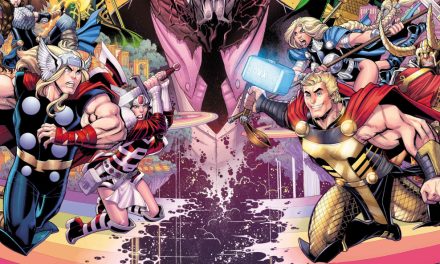
Welcome to Gladius, where Gladiators from lands near and far have arrived in the Colosseum, battling to see who is the mightiest of them all. You and your fellow spectators have decided to spice up the action with a few rounds of betting.
In Gladius players wager on the gladiators they believe will win … and lose. They’ll use their influence to strengthen or weaken gladiators, then place their bets with their inside knowledge. Who will show the most skill and cunning in placing their winning wagers?
Get in the Gladius Arena
Gladius is a card-based game of betting, bluffing, and hand management. Each player gets their own deck of cards with a unique special ability and a stack of betting tokens. The number of gladiators on each team and the skills (fight, theatrics, luck) that will determine the winning team are set up by a random event at the start of the round. Players then take turns placing their first bet on a team.
Now the fun begins: players take turns playing an influence card onto a gladiator. These vary from adding/subtracting skill points to moving gladiators to another team or removing them from the game. Face-up influence cards resolve immediately while face-down cards resolve at the end of the round.
In addition to your influence cards, you’ll have a unique ability, whether it’s being able to move your bet token or removing a facedown influence card and adding to your hand. You discard cards from your hand to trigger your ability and you only draw two cards at the end of each round, making hand management vital in Gladius. Overplay cards early and you won’t be able to influence late, but if you don’t play enough early, then you’ll be out of the running late.
The round ends when each player places their second bet. Reveal face-down influence cards and total each gladiator team. The team with the most points wins and all bets are placed on the first-place podium. Bets for the second-place team are returned to the players, and bets for the third-place team are placed on the third-place podium.
After three rounds all bets are revealed and the player with the most money wins.
Fight or Flight?

I loved the action phase in Gladius, when players influence the totals of each gladiator team. You and your opponents engage in bluffing and some meta-gaming as you try to influence teams to your benefit. It’s this guessing game that provides the tension in Gladius. You’ll often be wondering what card an opponent played face down or what bet they placed on a team, since all bets are secret until the end of the game.
Most of the time you’ll try to set up a team to win, but the game’s twist is when you want a certain team to lose. Each player has two death tokens which can earn extra points if you bet on a losing team and your opponents bet their regular tokens on it to win. Be careful, though, since any death tokens that make it to the first-place podium space are discarded!
I preferred the game at higher player counts; it’s tougher to deduce bets when more cards are played. Gladius works at two, though, with a clever variant that replaces the event setup with a simple voting system to determine the skills used for each round. It’s an effective way to maintain the tension of the multi-player game.
With its engaging card play, gorgeous artwork by Cheryl Young, and the smooth design by Victoria Cana and Alex Uboldi, Gladius is a game that will be welcome on many a tabletop.
Thanks to Cat Quartet Games for the review copy of Gladius.
Gladius launches on Kickstarter on February 18, 2020. For more information, visit the Gladius Facebook page.
Check out the Kickstarter for the game right here: https://www.kickstarter.com/projects/catquartetgames/gladius
Ruel Gaviola is a regular contributor to Geek & Sundry, The Five By, iSlaytheDragon, That Hashtag Show, and other sites. His name rhymes with Superman’s Kryptonian name. You can find him talking about board games on Twitter or Instagram.






